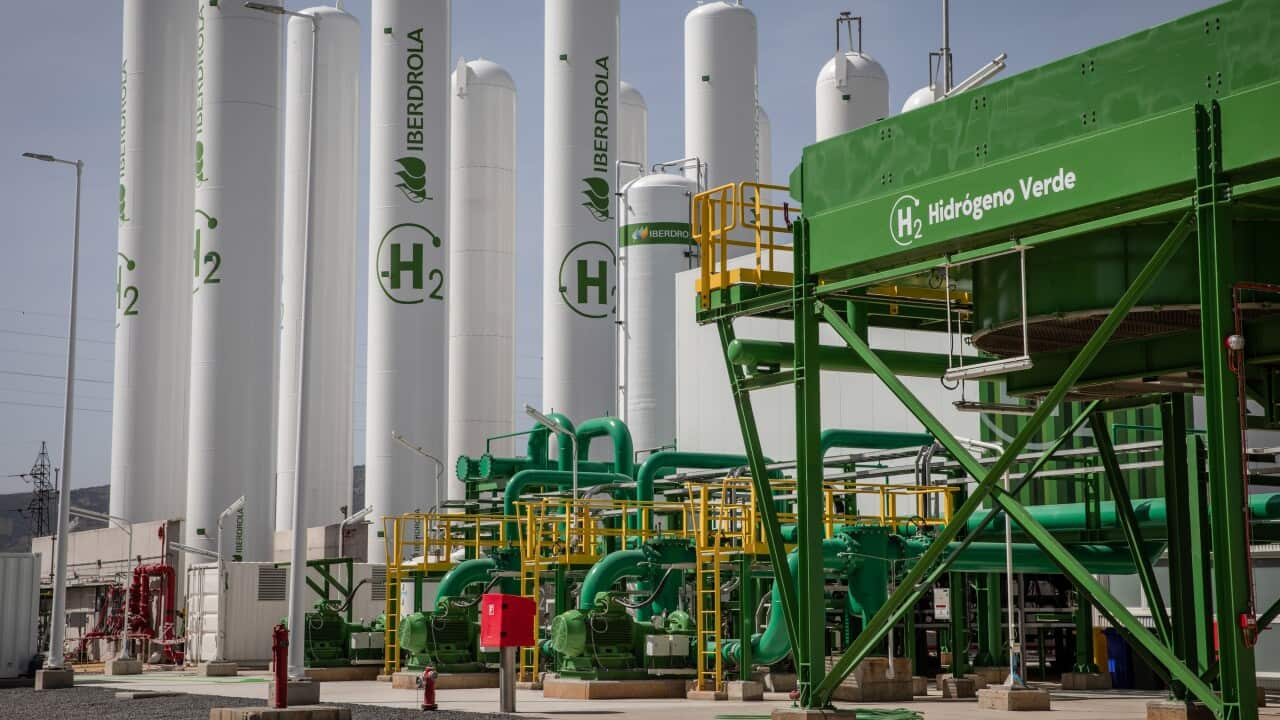TRANSCRIPT]]
The federal government says tax breaks for mining and manufacturing companies will lead to large regions of Australia being re-industrialised with billions of dollars of spending.
Production tax credits for hydrogen production and critical minerals processing all but passed parliament after the government struck a deal with the Greens on the incentives.
The laws passed the Senate in a late-night sitting on Monday and will now be sent back to the lower house to be rubber stamped.
Tim Roach is a part-time lecturer in tax at Edith Cowan University and a PhD candidate.
He says the government is trying to achieve two big outcomes with these tax credits.
"The first of these is the movement towards net zero. And so they're trying to encourage the use of things like renewable hydrogen, what they call green metals. And green metals is metals produced with a low or a zero carbon footprint and also low carbon liquid fuels. But the second big goal is an interesting one. So there are a number of critical minerals around the world that are critical to the movement towards net zero. So they're used in batteries and things like that. And what's been happening internationally is that the countries that can dig up and process these critical minerals, they've got a real competitive advantage over others, but also potentially they could hold the world to ransom because some of these critical minerals are quite rare. So this measure that the government's introduced is really trying to increase our security in relation to those minerals."
Assistant Trade Minister Tim Ayres said the measures would spur production in Australia across a range of industries.
But during the debate on Monday night, Western Australian Liberal Senator Dean Smith told the senate the bill will tie up business in complex regulation.
"This is burdensome bureaucracy and inefficient spending. The bill does not provide widespread tax relief to business, but instead ties them up in complex regulations. Further businesses must navigate multiple government agencies, including the Clean Energy Regulator arena and the Department of Industry before even reaching the tax office and the estimated compliance costs for businesses start at a hundred thousand a year, start at a hundred thousand a year, are ongoing and will be cumulative."
How will the tax credits work?
The tax credits mean hydrogen producers will get a tax incentive of $2 per kilogram of renewable hydrogen produced for up to ten years between 2027-28 and 2039-40, while critical minerals producers will get 10 per cent of processing and refining costs.
The Greens added their support after securing an amendment to prevent incentives being offered for uranium mining.
Greens leader Adam Bandt says the Greens are strong supporters of ground critical minerals in Australia, including processing in many parts of the country.
"As we transition out of coal and gas, all of the skills that many miners and other people who work in that industry have can be redeployed to help us mine and process the minerals that are going to be needed in a zero pollution world. We wanted to Dutton proof the legislation and make sure that it couldn't be used as a slush fund for the nuclear industry. We're able to do that The Greens want to see support to grow critical minerals in this country, because we've got to stop opening new coal and gas mines. We owe secure jobs to mining workers and their communities, and the best way to do that is to support the growth of critical minerals and processing here."
The tax incentives form part of the federal government's $22.7 billion Future Made in Australia manufacturing policy, which aims to fund clean energy projects and create jobs for the decarbonisation transition.
In a statement the Business Council of Australia welcomed the laws passing the Senate, saying it would make Australia more competitive in manufacturing.
But it also cautioned the government to make sure the final design and administration of the production tax credits must not be so restrictive or onerous as to undermine their success.
ACTU president Michele O'Neil says the scheme would help deliver thousands of new jobs.
Labor Senator Matt O'Sullivan says the tax credits will have a substantial impact on the Australian economy.
"This is a substantial re-industrialisation of our economy. It is value adding to what is our mining sector is very important for the Australian economy. It's very important for our industrial capability. Our mining capability is leading edge, and often people position our interest in future manufacturing and mining as if they are somehow mutually exclusive. The truth is, it is absolutely in Australia's interest that we add more value here and we capture more of the value here in Australia to build a stronger Australian economy, to build stronger industrial capability. And that's what the critical minerals production tax incentive will deliver. "
Tim Roach says the impact of the changes are likely to be felt in regional areas.
"This should be really good news for regional Australia. I mean as well as hopefully achieving the government goals of increasing our critical mineral security and going towards net zero, we should see increased investments further up the value chain. And as you'd be aware, Australia's very good and has historically been very good at digging stuff out of the ground and shipping it overseas. But these tax breaks are encouraging more than that. They're encouraging investment in processing and value adding, which is very different for a lot of regional areas. And it should encourage investment and jobs in regional areas further up the value chain. And in doing so, it should help us move away from the ups and downs and the cycles of the mining industry and materials prices around the world."
The bill has been sent back to the lower house to be rubber-stamped.
Production tax credits have received support from Western Australia's leaders, the Queensland Resources Council, the Association of Mining and Exploration Companies and others.













